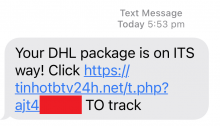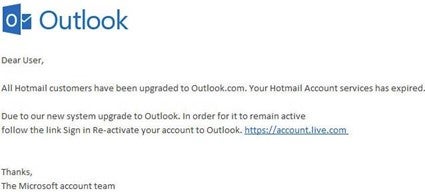Keeping your personal information safe is important to us
As reported by Scamwatch, which is run by the Australian Competition and Consumer Commission (ACCC) to help consumers and businesses recognise and report scams, over $320 million was lost to scams in Australia across 2021 alone — it’s predicted that this amount is only going to increase year-on-year, impacting more people.
At Guardian, we take your privacy seriously. But no matter what technology or processes we have in place to protect your personal information, awareness will always be the best way to protect yourself against the scammers.
A crash course on scams
A scam is designed to trick you into handing over your personal information, and can be delivered via email, SMS, dating websites, social networking websites, instant messaging, video communication such as Skype or FaceTime, or even a USB drive posted to your address.
If successful, stolen information can be used to commit fraudulent activities such as making online purchases with your credit card or opening a bank account.
Scams fall into the following categories:
Buying or selling scams
These scams use fake websites to trick you into sending money for products or services that don’t exist, or send you bills or invoices for something you never ordered.
Investment scams
These scams offer you an easy way to make money, with fake opportunities such as property or business deals with a “guaranteed” high-return or a gambling system that promises a significantly higher chance of winning.
Dating and romance scams
These scams take advantage of rising loneliness, creating fake profiles to attract potential victims and then using strong emotional triggers to convince them to provide money, gifts, or their personal details.
Jobs and employment scams
These scams are designed to trick you into paying for training or be given access to a dream role that bypasses the necessary qualifications or experience.
Unexpected money scams
These scams give you false hope about seemingly legitimate offers of money, such as an inheritance from a distant relative or a stranger who wants to move a large lottery win out of their country to avoid high taxation, requiring you to pay a release fee or hand over your personal information.
Remote access scams
These scams require you to hand over control of your computer or other device to a caller or supposed online expert, with scammers often pretending to be from your local council, electricity company, internet or phone provider, or other trusted source.
Threats and extortion scams
These scams often occur after a scammer – who may claim to be from a trustworthy organisation such as the government or the police – has taken control of your computer through fraudulent means, threatening to release sensitive information or even threaten your life if you don’t hand over money or your personal information.
Unexpected win scams
These scams trick you into sending money or your personal information in order to receive a prize from a lottery or competition that you never entered.
Fake charity scams
These scams often impersonate genuine charities, asking for donations after natural disasters or other major events such as the 2018/2019 bushfires.
Cyber Security FAQsFrequently Asked Questions
What to do if you’ve been scammed
Even with the best information, you can still fall victim to a scam. To help limit the damage, please follow these three simple steps:
- Don’t panic. Cancel any bank or credit cards that may have been affected, put your accounts on hold and immediately change all passwords.
- If you think your personal information may have been compromised in any way, please contact Guardian Insurance on 1300 709 431 immediately. As soon as we hear from you, we can take steps to minimize any further losses and help make sure others don’t fall victim to the same scam.
- If your personal information has been compromised or you’ve suffered financial loss, log an incident with the Australian Cyber Security Centre or call their hotline on 1300 292 371. A list of resources, including recovery and counselling services, can be found on the Scamwatch website.
What if my personal information has been impacted by a data breach?
How to protect yourself
Know the enemy
While it’s almost impossible to completely protect yourself from scams, knowing how the scammers work can significantly reduce your risk of becoming a victim.
To help educate yourself, Scamwatch and the Australian Cyber Security Centre (ACSC) provide comprehensive information on how to spot a scam. Scamwatch also has a number of real-life stories on their website from Australians who’ve been scammed, making them public in the hope of helping others avoid the same fate.


